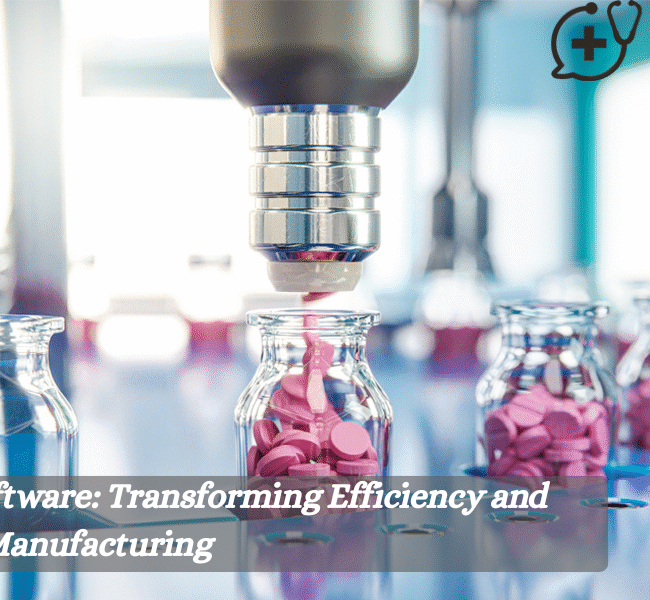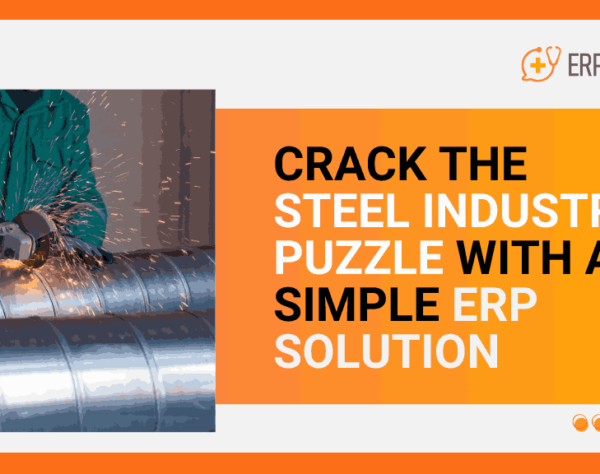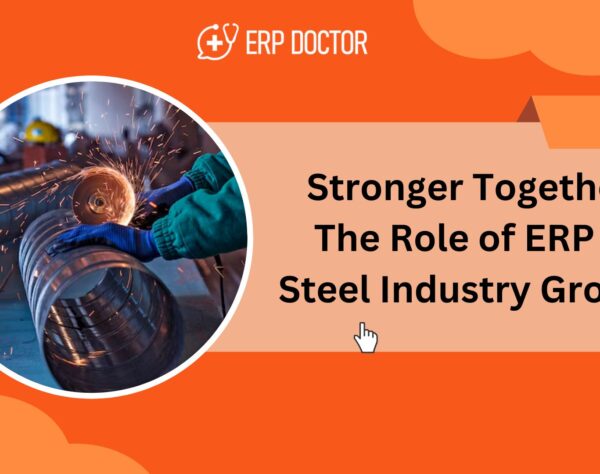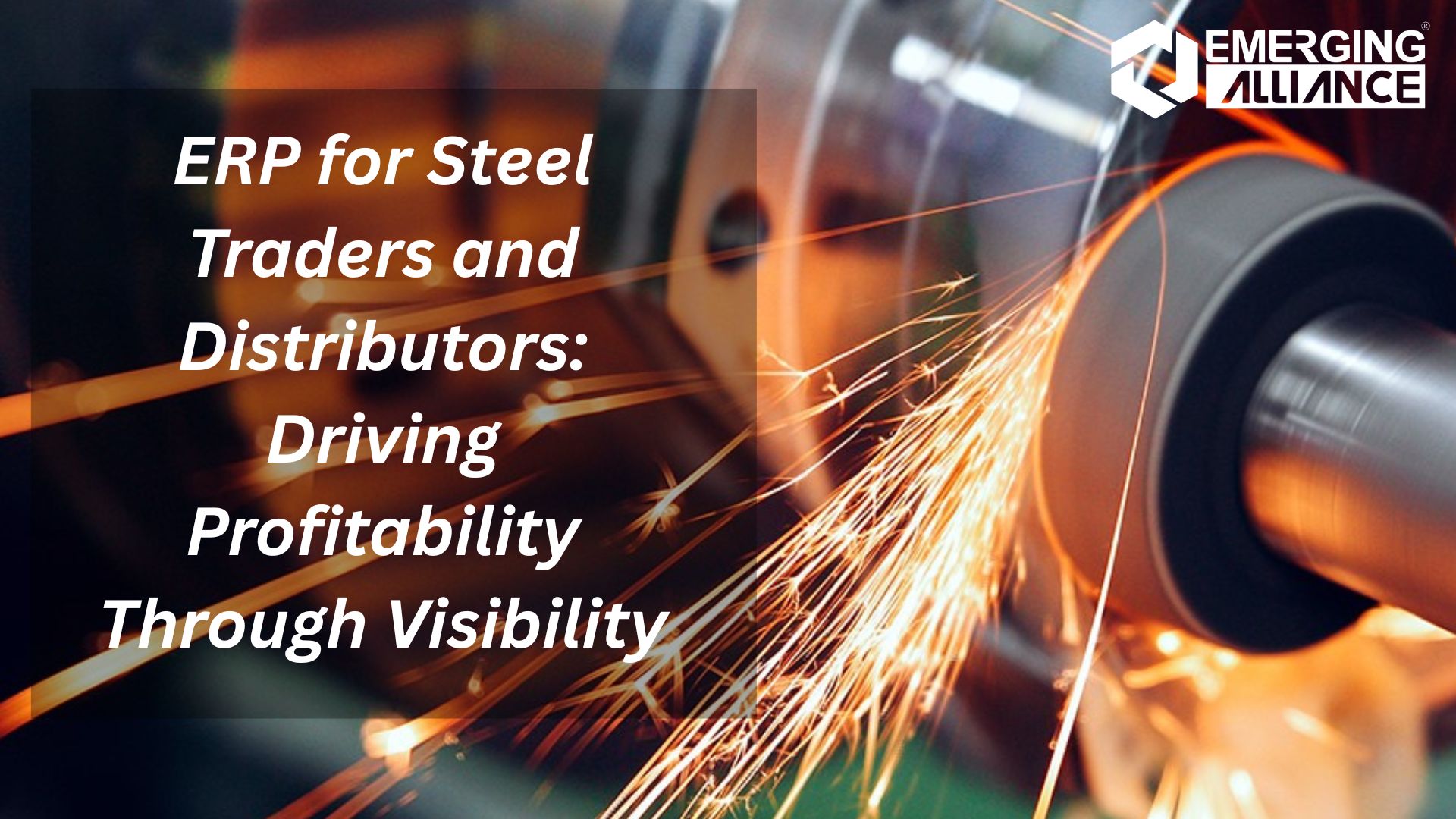
ERP for Steel Industry: Driving Profitability Through Visibility
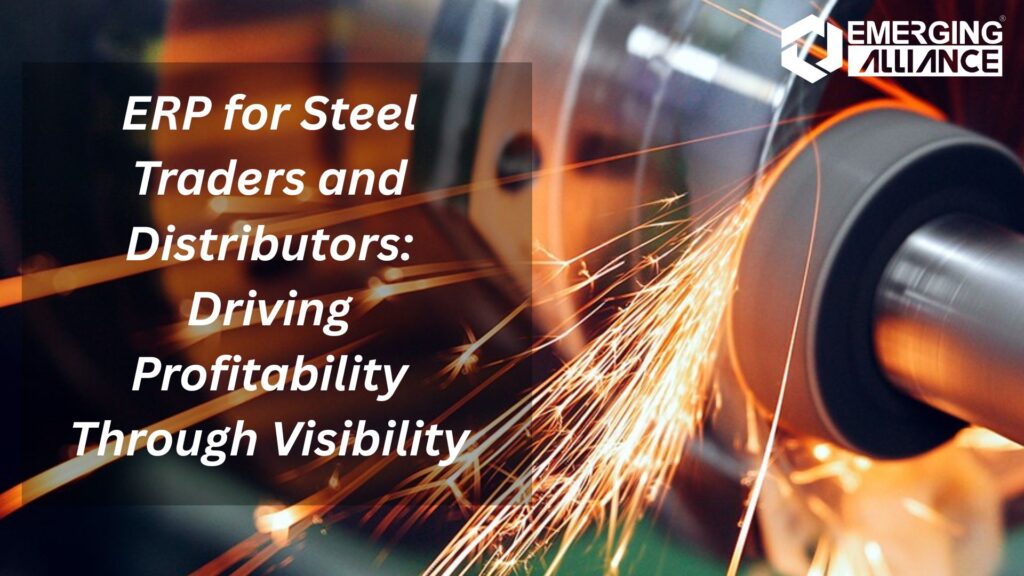
How ERP Empowers Steel Traders and Distributors for Profitability
The steel industry is one of the most dynamic and competitive sectors worldwide. It deals with constant challenges such as fluctuating raw material costs, volatile demand, and complex supply chain structures. Unlike consumer goods, where standardization is common, steel products vary by grade, thickness, length, and weight. For steel traders and distributors, managing this complexity is not just a matter of efficiency — it directly impacts profitability.
Steel businesses work with very thin margins, so mistakes in inventory, pricing, or logistics can be costly. Using only spreadsheets or basic accounting systems often causes missed sales, excess stock, compliance issues, and late deliveries. A dedicated ERP for Steel Industry solves these problems by offering visibility, automation, and real-time insights — turning steel trading from reactive to proactive.
Why Steel Traders and Distributors Need ERP
While manufacturing ERP solutions get plenty of attention, distribution-focused companies face their own set of challenges:
- Price Volatility – Steel prices are influenced daily by global markets, fuel costs, and currency fluctuations. Traders need real-time updates to adjust their margins quickly.
- Inventory Complexity – Each distributor often handles hundreds of SKUs: coils, sheets, rods, bars, and scrap, all in varying grades and finishes. Tracking them manually is nearly impossible.
- Logistics Management – Delivering heavy steel products across multiple warehouses and customer sites requires accurate planning to avoid delays or excess costs.
- Regulatory Compliance – Steel trading is subject to GST, excise, customs duties, and other taxes. Manual compliance processes are error-prone and risky.
A specialized Steel ERP Software helps tackle all these issues. By offering a single source of truth, it synchronizes data across finance, operations, inventory, logistics, and sales teams — ensuring every decision is backed by real-time insights.
Key Benefits of ERP Software for Steel Traders & Distributors
1. Real-Time Inventory Visibility
With ERP Software for Steel Industry, traders can track their stock across multiple warehouses, branches, and yards. Features like barcode scanning, heat number tracking, and automated stock reconciliation ensure accurate reporting. Instead of losing deals due to stockouts or over-promising to customers, traders can confidently make sales based on actual availability.
2. Smarter Pricing and Margin Control
Dynamic markets require dynamic pricing. An ERP for steel production industry lets traders adjust prices instantly based on supplier rates, transportation costs, and customer demand. The system automatically calculates margins and helps teams negotiate with buyers while staying profitable. Built-in credit controls also prevent over-exposure to high-risk customers.
3. Streamlined Sales and Distribution
From quotation to invoicing, an ERP Software Solution for Steel Industry automates the complete sales cycle. Customizable templates generate professional quotations, while order fulfillment modules align inventory allocation with logistics schedules. This reduces manual data entry, speeds up the sales process, and minimizes costly errors.
4. Cloud-Enabled Mobility
In today’s fast-paced market, steel traders cannot be tied to office desktops. A cloud-based ERP for Steel Industry provides access to dashboards, reports, and approvals from anywhere. Field sales representatives can update orders, check inventory, and provide instant responses to customers while on the move. This mobility not only improves customer experience but also shortens sales cycles.
5. Improved Compliance and Reporting
Steel distributors must adhere to strict taxation and regulatory frameworks. ERP solutions simplify compliance by automatically generating GST reports, e-invoices, and excise documentation. Additionally, audit-ready financial statements reduce risks and ensure smooth statutory filings.
ERP as a Bridge Between Manufacturing and Distribution
Even if your primary focus is trading, collaboration with manufacturers is essential. For example, when traders know about production schedules in advance, they can plan sales and deliveries better. An ERP for steel manufacturing industry provides this crucial bridge by integrating production data with trading operations.
- Traders can check real-time production updates, avoiding false commitments.
- Manufacturers can plan batches based on distributor demand forecasts.
- End customers benefit from better delivery timelines and transparency.
This synergy reduces bottlenecks, enhances trust between trading partners, and ensures a stronger supply chain ecosystem.
Why Generic ERP Doesn’t Work for Steel
While generic ERP platforms cover basic functions like accounting and HR, they often miss out on the industry-specific complexities of steel businesses. A dedicated ERP for Steel Industry includes features such as:
- Heat number and batch tracking – critical for quality assurance and traceability.
- Weight-based billing – instead of just quantity-based invoicing, ERP calculates by weight, length, or piece count.
- Scrap and by-product management – important for maximizing profits in steel recycling.
- Multi-UOM handling – the ability to convert seamlessly between MT, KG, pieces, or meters.
These specialized functions not only ensure accuracy but also reduce manual intervention, resulting in higher adoption among users and faster ROI.
Advanced Features Driving Modern Steel ERP
The new generation of ERP Software for Steel Industry goes beyond automation. Many solutions today integrate AI, IoT, and predictive analytics:
- AI-driven demand forecasting helps traders stock the right products.
- IoT-enabled warehouse management ensures accurate coil length or sheet count monitoring.
- Predictive maintenance reduces downtime in processing units for distributors with value-added services like cutting and fabrication.
- Business Intelligence dashboards highlight sales performance, aging reports, and profitability by product line or region.
Such advanced features make Steel ERP Software not just a back-office system but a strategic tool for growth.
To Sum It Up
For steel traders and distributors, profitability often depends on visibility — knowing stock levels, pending orders, and market shifts. Without a dedicated system, these insights remain scattered, causing inefficiencies and lost opportunities. A specialized ERP Software Solution for Steel Industry delivers end-to-end visibility, smarter pricing, streamlined operations, and compliance, making a cloud-based ERP for Steel Industry a strategic necessity. By aligning operations with technology, businesses can move beyond survival to sustainable growth, where clarity, efficiency, and smart decisions drive profitability.
FAQs
1. Why is ERP important for the steel industry?
The steel industry operates with tight margins, fluctuating prices, and complex supply chains. An ERP system helps businesses manage these challenges by providing real-time visibility, optimizing inventory, automating pricing, and ensuring regulatory compliance — all of which improve efficiency and profitability.
2. How does ERP help steel traders and distributors?
ERP helps traders and distributors by providing real-time inventory visibility, automating sales and pricing, streamlining logistics, and ensuring compliance. This reduces errors, cuts costs, and improves customer satisfaction.
3. Why can’t spreadsheets handle steel business operations effectively?
Spreadsheets lack real-time updates, data integration, and automation. In the fast-moving steel industry, this leads to stock mismatches, pricing errors, compliance lapses, and missed opportunities. ERP prevents these issues by centralizing and automating processes.
4. What are the benefits of Steel ERP Software?
Steel ERP Software offers multiple benefits such as dynamic pricing control, stock optimization, automated compliance, faster order processing, and better customer service. It also improves decision-making through analytics and reporting.
5. Is a Cloud-based ERP for Steel Industry better than on-premise systems?
Yes. A cloud-based ERP for Steel Industry provides anytime, anywhere access, quick scalability, lower upfront costs, and faster updates. It also improves collaboration between teams spread across different locations.
6. Can ERP manage different types of steel products?
Yes. ERP Software for Steel Industry can handle multiple grades, sizes, and units of measurement, including coils, sheets, bars, rods, and scrap. It ensures accurate tracking and billing regardless of product complexity.
7. How does ERP improve pricing and profitability for steel businesses?
ERP for steel production industry allows traders to set dynamic prices based on real-time supplier rates, demand, and costs. It also monitors margins, credit limits, and sales history to ensure profitable decision-making.
8. Does ERP support compliance and regulatory requirements?
Absolutely. ERP systems automatically generate GST filings, excise reports, e-invoices, and other statutory documents. This reduces manual workload, minimizes errors, and keeps businesses compliant with tax authorities.
9. Is ERP suitable for small and mid-sized steel businesses?
Yes. Modern ERP Software Solutions for Steel Industry are highly scalable and affordable, especially cloud-based ones. They are designed to support SMEs with limited budgets but high operational needs.
10. How does ERP integrate steel manufacturing and distribution?
An ERP for steel manufacturing industry connects production schedules with trading and distribution data. This helps traders plan deliveries more accurately, manufacturers align production with demand, and customers receive timely service.
Boost profitability and visibility in your steel business—adopt a specialized ERP for Steel Industry today.



